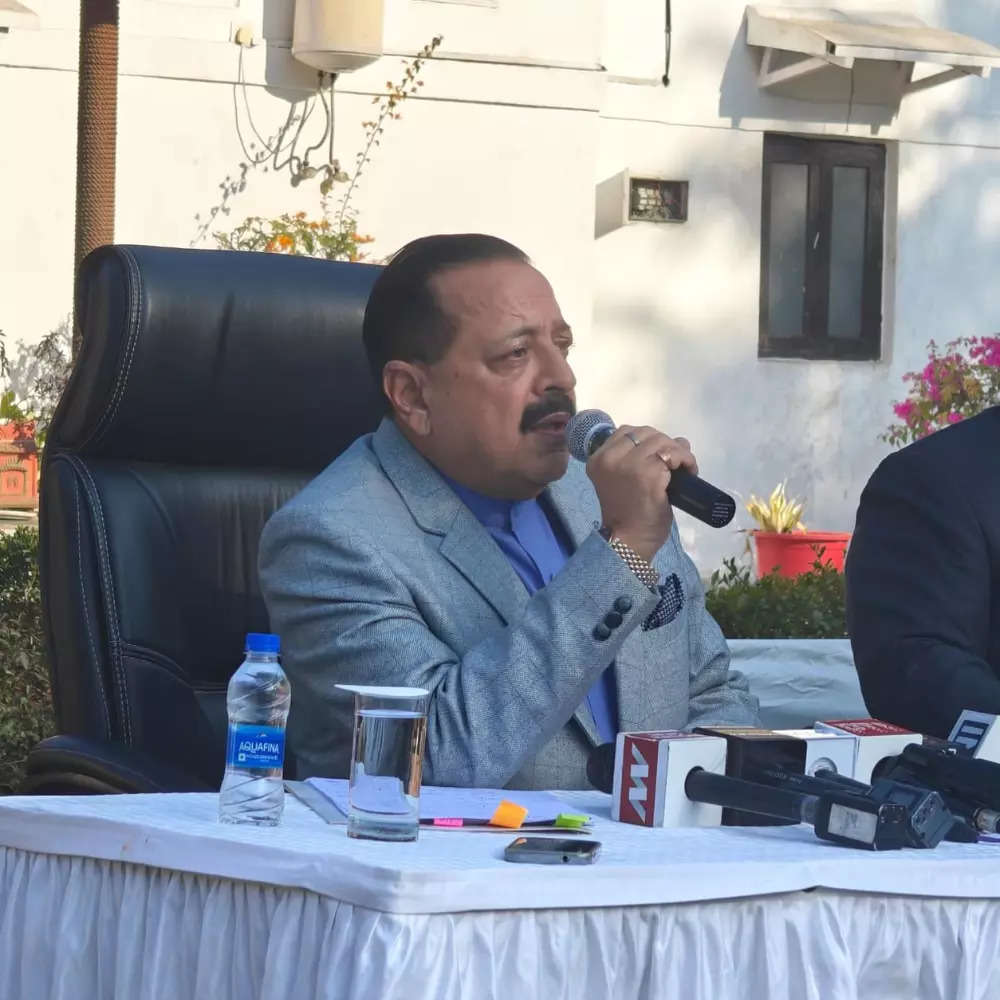
New Delhi: There have been substantial achievements in the field of science and biotechnology in 2024. The Ministry of Science and Technology (MoST) has taken several significant steps to boost the sector, informed Dr Jitendra Singh, Minister of State (Independent Charge), Ministry of Science and Technology.
As the year 2024 draws to a close, providing a quick roundup of the top achievements of the ministry, Dr Singh said, “In 2014, India had only about 50 biotech startups. Today, under the current government, the number has skyrocketed to over 9,000, reflecting the immense transformation across sectors like biotechnology, space exploration, and advanced scientific research. This surge can be attributed to concerted policy reforms and a visionary approach that has propelled India to the forefront of global innovation.”
In the biotechnology sector, India has witnessed an extraordinary transformation. From just 50 biotech startups in 2014, the sector has expanded to 9,000 startups, contributing significantly to the global bioeconomy. The government’s strategic initiatives have propelled the sector’s growth, with the bioeconomy now valued at $130 billion and expected to reach $300 billion in the coming years. Innovations like India’s world-first DNA vaccine and breakthrough developments in cervical cancer prevention, along with the production of an indigenous antibiotic to fight resistant respiratory infections, showcase the country’s growing expertise in biotechnology.When ETHealthworld questioned Dr. Singh about expectations for the upcoming Budget 2025, particularly for the biotechnology sector, he said, “The National Research Foundation is expected to play a significant role, with substantial contributions from the private sector in biotechnology. Our stance is clear: we cannot rely solely on government funding. Even countries we are competing with do not depend exclusively on government sources for innovation.”
“At the same time, we are still actively making our case for the necessary funding. We hope that the upcoming budget will better reflect the needs and potential of the biotechnology sector,” Dr. Singh added.
The launch of the Bio E3 policy, which focuses on creating jobs and addressing environmental concerns, reflects India’s forward-thinking approach in this sector. Furthermore, India’s leadership in advanced medicine, such as gene therapy for hemophilia, is redefining healthcare solutions globally.
Looking ahead, India’s growth trajectory in space, biotechnology, and advanced sciences seems promising. With significant investments in these sectors, India is positioning itself as a global leader in innovation. The government’s focus on creating sustainable and affordable solutions, along with encouraging private sector participation, will continue to fuel the country’s rise in the coming decades. As the bioeconomy, space sector, and technological advancements grow, India is set to play a critical role in shaping the future of global innovation.
The upcoming budget is expected to reflect these advancements, with further investments in biotechnology and space exploration. While the government has made substantial progress, there remains a need for more funding in emerging areas like biotechnology, where collaboration between the private and public sectors will be crucial. The expectation is that future budgets will support these high-impact sectors, ensuring that India remains at the forefront of global innovation and technology.
In conclusion, India’s investments in space, biotechnology, and other advanced scientific domains are poised to transform the country into a global leader, contributing not only to economic growth but also to solving critical global challenges. As India charts its path toward 2047, the vision for a robust bioeconomy, space exploration, and scientific breakthroughs will continue to drive the country’s ambitions to new heights.
Touching upon the scientific advancements, Dr. Singh said, “India’s achievements extend beyond biotechnology and space. The launch of the deep-sea mission and the successful desalination plant in Lakshadweep are examples of the government’s focus on marine resources and environmental sustainability. Similarly, the establishment of the National Research Foundation, Anusantar, which will operate globally, marks a significant milestone for scientific research in India, with funding from both public and private sectors.”
The government has also focused on empowering young entrepreneurs and women through programs like the INSPIRE Scheme, which has benefited nearly nine lakh students. Initiatives like the Svamitva scheme, which uses drones to map land without requiring government officers, are helping citizens take ownership of their land, illustrating the government’s commitment to leveraging technology for social empowerment.







